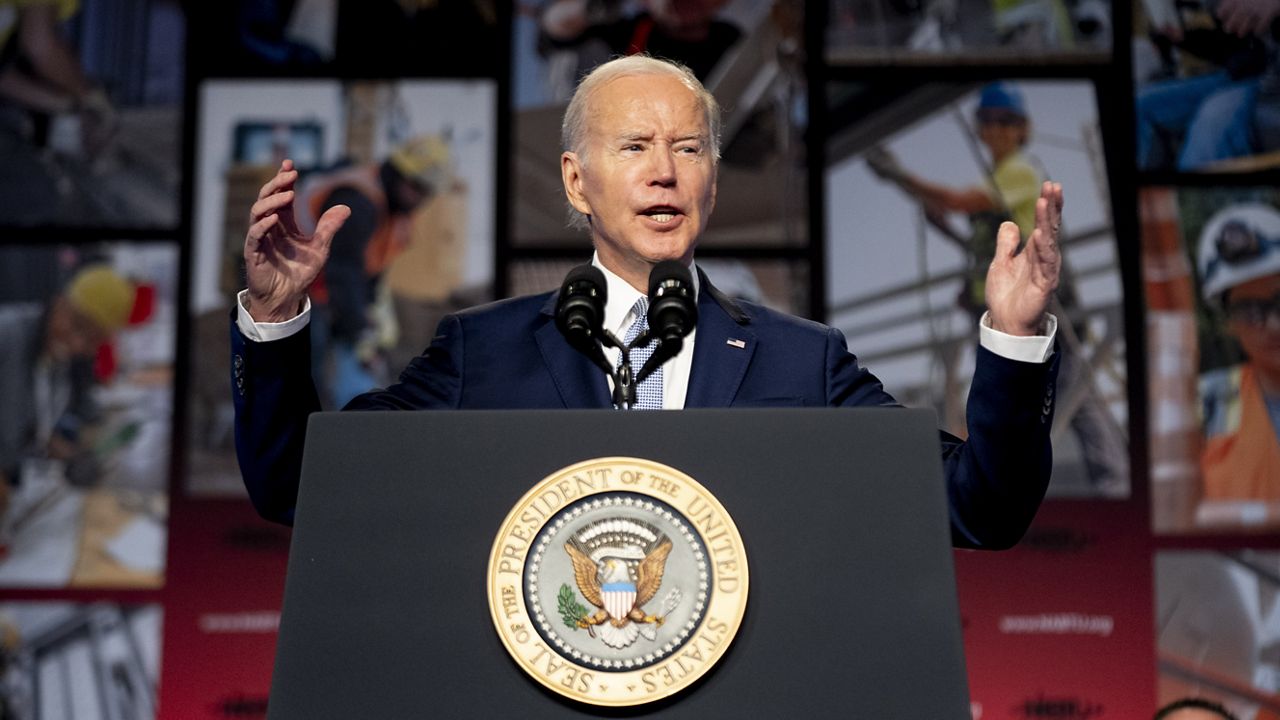"Freedom's just another word for nothing left to lose." — Kris Kristofferson
The first image you see isn’t Joe Biden or Kamala Harris or smiling Americans — it’s the chaos outside of the Capitol on Jan. 6.
With little fanfare on Tuesday, someone on the president’s political team pushed a “send” button shortly after 6 a.m., releasing a three-minute video declaring what was already expected: Joe Biden is running for reelection.
Biden’s opening argument begins not with his own record but with Jan. 6, seizing Donald Trump’s “American carnage” inveighed at his inauguration in 2017 and throwing it back at him to show how it boomeranged on the country four years later.
After the Capitol riots in the campaign video, we have a reminder that “Roe v. Wade” is no longer the law of the land when a protester is seen outside the Supreme Court, holding a sign declaring “ABORTION IS HEALTH CARE.”
The president then invokes what has traditionally become more of a Republican mantra: “Freedom. Personal freedom is fundamental to who we are as Americans.”
Biden’s strategy is clear: vote for me because I’m not a “MAGA extremist.”
It’s a plan based on the very real possibility that the GOP will once again nominate Trump as its presidential candidate. Many on Biden’s team are probably praying that Trump will be their opponent again, but it was also a prayer made by Hillary Clinton that was answered in 2016, and now she’s home in Chappaqua.
But Biden’s “Freedom” is a much cannier slogan than Clinton’s “Love Trumps Hate” — which instantly placed a spotlight on her Republican foe.
(There’s a reason why candidates are taught to say “my opponent” in a debate rather than mention their actual name.)
Freedom is American as apple pie, but it may have gotten its biggest slice of attention from Franklin Delano Roosevelt in 1941. Eleven months before the attack on Pearl Harbor, Roosevelt delivered one his most famous addresses, delineating in his State of the Union speech four “Freedoms” he thought all of humanity must enjoy: freedom of speech, freedom of religion, freedom from want and freedom from fear.
In the middle of the war, the speech all but officially entered the American canon in 1943 when artist Norman Rockwell depicted each freedom on the cover of four consecutive issues of “The Saturday Evening Post” — the most widely read magazine in the United States at the time.
I’m not sure how Rockwell would have depicted “Freedom from Trump” — but that seems to be the driving point of the Biden campaign right now. Trump — or whoever the Republican nominee will be — will likely try to hang Biden on his own pledge in his video to “finish the job,” pointing to high inflation and claiming that the economy has suffered badly since Trump left office.
Most Americans are dreading another “Trump vs. Biden,” but it’s a sequel that could be coming soon to a voting booth near you. It’s something Norman Rockwell thankfully isn’t around to have to draw.



